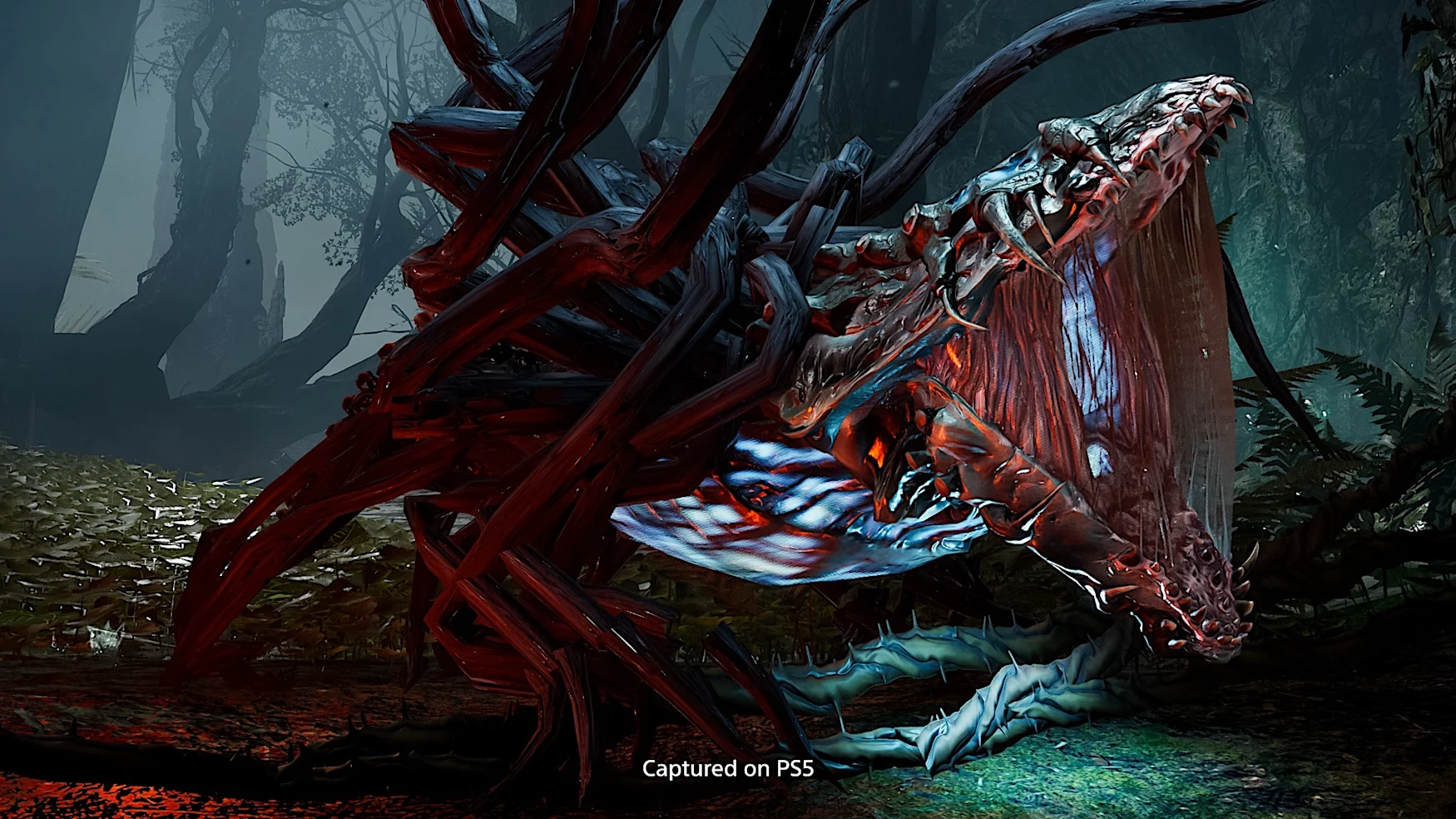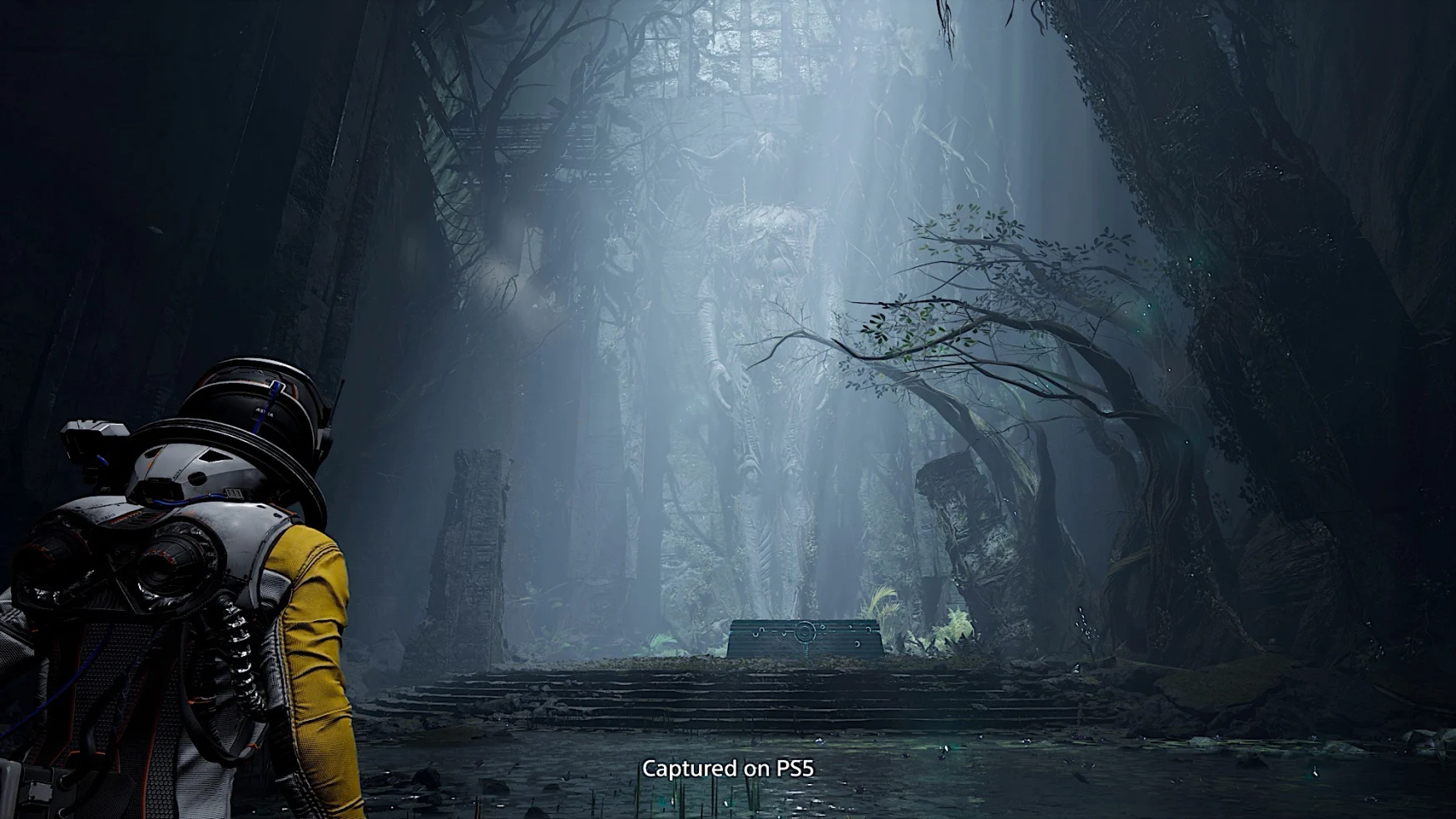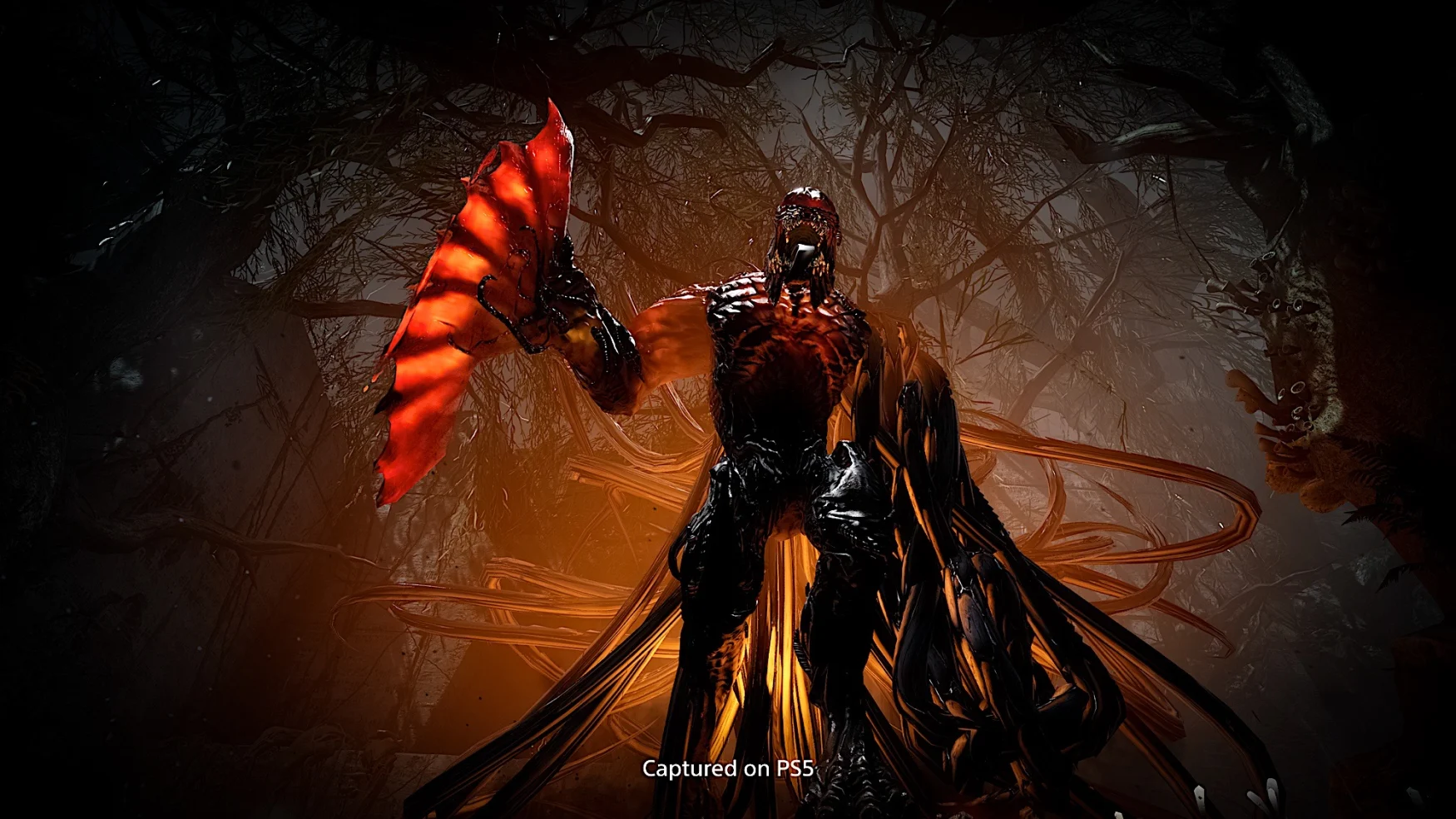At first glance, it's easy to say "been there, done that" about Returnal. A PlayStation 5 exclusive from Finnish developer Housemarque, best known for shooters like Super Stardust HD, the game puts you in the shoes of a lone female space explorer who crash lands on an alien planet. Just about everything there wants to eat you alive — but more surprising is the realization that you're stuck in a time loop. Every death brings you right back to the site of the crash, with only a handful of items and what remains of your dignity.
From that description alone, you can take your pick of references from Alien, Metroid, Groundhog Day and Edge of Tomorrow. The influences get even more specific the deeper you go, with space horror imagery from Event Horizon and the psychological intrigue of David Lynch. What makes it special, though, is how all of those disparate elements interact. It's at times frustratingly difficult, and its systems are sometimes tough to suss out. But I just can't stop playing it.
Similar to last year's Hades, Returnal is a reinvention of the increasingly popular Roguelite genre. That describes games which feature randomly generated rooms, where the whole point is to die often. Typically you can bring back some gear with you, but most of the time they're about sharpening your skills. When it comes to actual gear, Returnal's loops are far less rewarding than Hades. You've only got ether, a rare currency that sticks with you between runs. And there are a handful of equipment upgrades that remain permanently too, like your inevitable (and absolutely badass) laser sword. There aren't any upgrades you can buy to get stronger. You'll get better simply by playing the game more often, which allows you to learn the timing of enemy attacks, or the best way to use different weapons.
Returnal also shares Hades' penchant for spreading its narrative throughout its loops, though to a lesser degree. It doesn't take too long before you encounter your own body, arranged in various portraits of death, with voice messages you don't remember leaving. It's clear that Selene has been trapped on the alien planet of Atropos long before you've actually started the game. You won't be encountering many other characters, and you'll find more questions than answers to the game's many mysteries. Why does Selene's 20th-century Earth home show up on an alien planet? Who is the astronaut haunting her dreams? I appreciated the game's subtle approach to storytelling, but it can be frustrating if you're looking for more of a straightforward narrative.

More so than its story, it's the gameplay that'll draw players to Returnal. It offers up some of the crispest movement and shooting mechanics I've played in years. The game simply feels good to play. Your main character, Selene, is equipped with a space suit that lets her dash on the ground and in mid-air. And even though she's not as young as most protagonists, she's nimble enough to run loops around enemies and dodge their projectile attacks.They're not shy about spewing ammo at you either. In my 10 hours of gameplay, I've encountered giant enemies that fill the screen with glowing orbs. Your only choice is to hide behind the fragile environment, sidestep the onslaught, or dash right through it (doing so gives you a brief amount of invulnerability).
Given Housemarque's background in shooters, firing off every weapon feels fantastic, as well. You start out with a pistol, but you'll eventually find assault rifles, alien shotguns and rifles that spew out damage like machine guns. You can aim down your sites, as usual, by holding down your left trigger a bit. But you can also press down even further to activate alt-fire modes, like a massive energy grenade or electrical attack. That controller configuration feels reminiscent of Nintendo's Gamecube controllers, which had analog triggers that also activated a digital button if you pressed hard enough.
Returnal's dual-step aiming system takes a bit of getting used to. It's far too easy to activate a weapon's alt-fire if you're just trying to line up a better shot. And that means you either waste a more powerful attack, or you get an annoying error that your alt-fire is still waiting to recharge. That bugged me less as I learned how to shoot from the hip with every weapon. The game also offers a healthy dose of aim correction, so it never felt like I had to be a sharpshooter to be effective.



